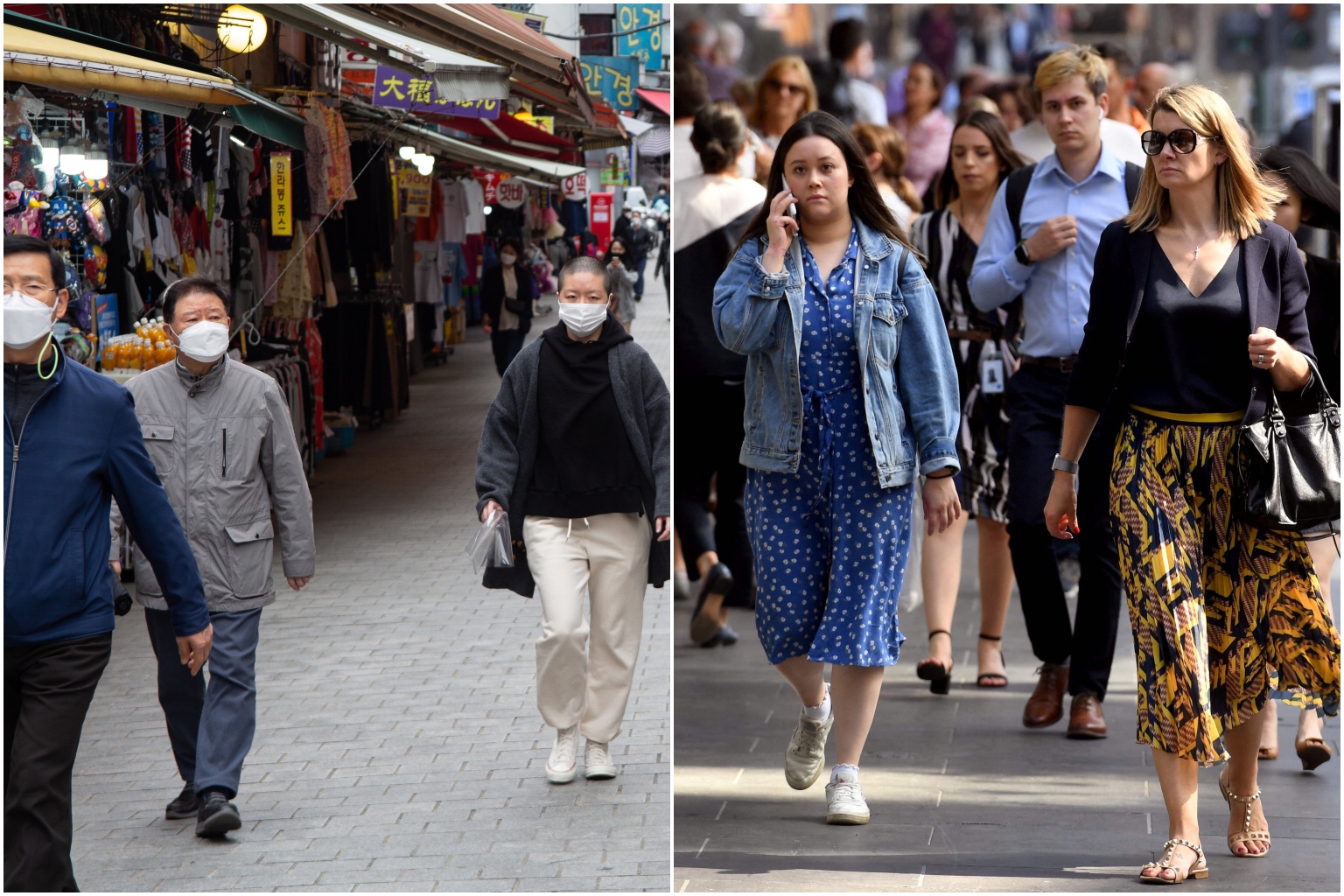South Korea and Australia: Two Asian economies show rare resilience to Covid-19 crisis
Sign up now: Get ST's newsletters delivered to your inbox

South Korea and Australia have a close economic relationship.
PHOTOS: EPA-EFE, AFP
Follow topic:
SYDNEY (BLOOMBERG) - South Korea and Australia are proving the odd couple of the global economy, managing to mitigate the impact of the Covid crisis due to deep links with China's growth and key advantages unique to themselves.
The duo's connections aren't obvious given South Korea is a manufacturing powerhouse with skilled labour as key strength and Australia extracts vast resource wealth from a continent it has to itself.
The common denominator is their exposure to China, which is the endpoint for more than 25 per cent of Korea's exports and an extraordinary 43 per cent of Australia's shipments.
Yet the reliance doesn't explain all, as China is the biggest market to most in Asia, including Japan, and many have performed poorly during the pandemic.
Another common feature is the duo's relative success in controlling the pandemic. The coronavirus has all but been eliminated Down Under, while Korea has managed to keep total infections so far to around 115,000 - a fraction of what's seen in similar-sized countries elsewhere.
"They're an odd couple," said Saul Eslake, an independent economist. "They're in the same timezone, but that's about it. Korea is an importer of commodities and an exporter of increasingly sophisticated manufactured goods."
Mr Eslake noted the countries have one of the three Ps that typically drive growth - population, participation and productivity - Australia the first and Korea the third.
Their currency values tend to rise in a risk-on atmosphere, though it's the Korean won that's more aligned with the Chinese yuan, said Park Chong-hoon, an economist at Standard Chartered Bank in Seoul.
The two nations, the only developed economies to dodge the 2009 global recession and whose contractions last year were shallower than most, do have a close economic relationship. South Korea is Australia's fourth-largest trading partner and they've had a free-trade agreement operating since 2014.
An Ernst & Young report released last month found few countries managed to achieve positive economic and health outcomes during the Covid-19 pandemic. It placed Australia and South Korea in an elite quad that also included Denmark and New Zealand.
Their huge exposure to China also comes with risks, with both having run afoul of Beijing. South Korea faced a tourism boycott after it deployed the US anti-missile system in 2017. Australia faced a range of trade actions against goods including coal, wine and barley after calling a year ago for independent investigators to be allowed into Wuhan to probe the origins of the coronavirus.
Peter Drysdale, head of the East Asian Bureau of Economic Research at the Australian National University, notes both Australia and Korea opted for major fiscal responses to the global financial crisis and Covid. He says how they manage China going forward is key.
The most important point is "what strategies each country has for linking to the growth momentum in China that appears clearly set to continue," said Drysdale, one of the architects of APEC. "What will things look like down that track and will the position of each country be as they try to capture long term growth potential."

